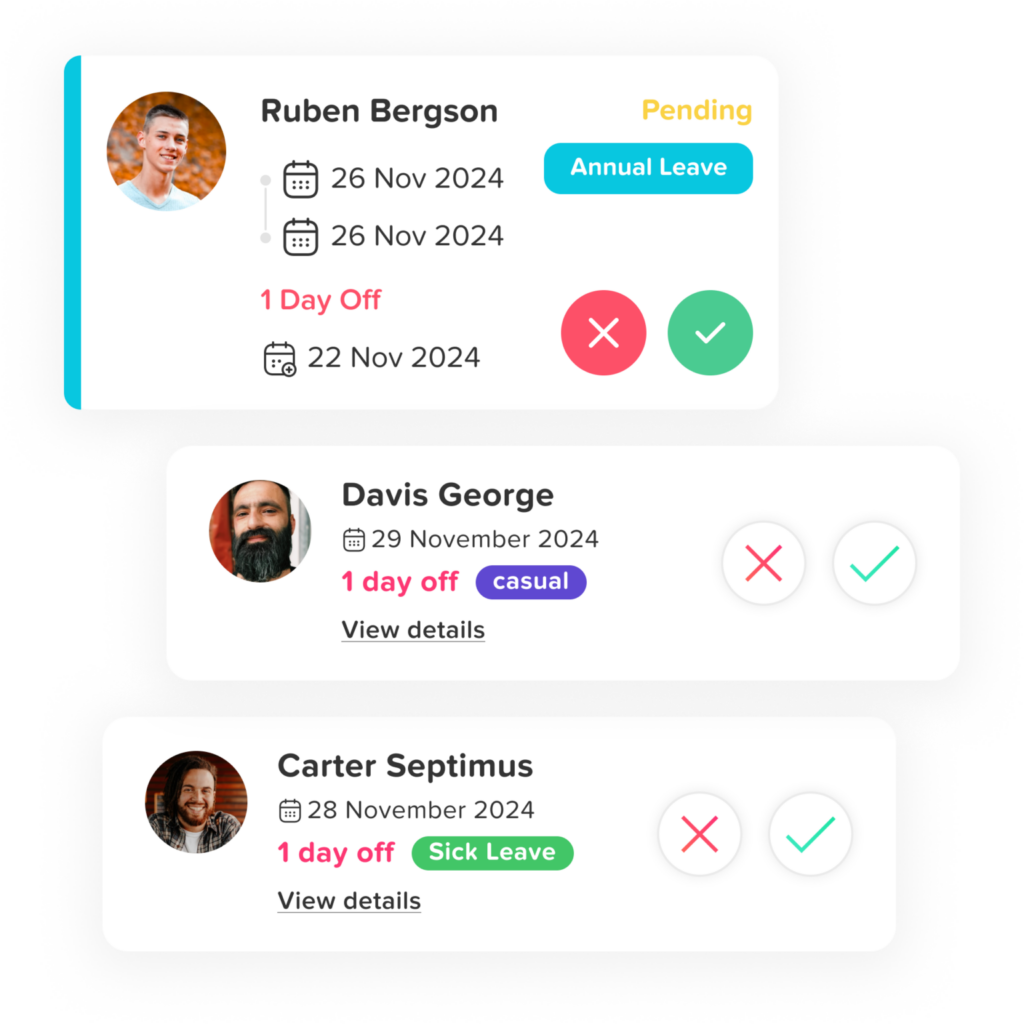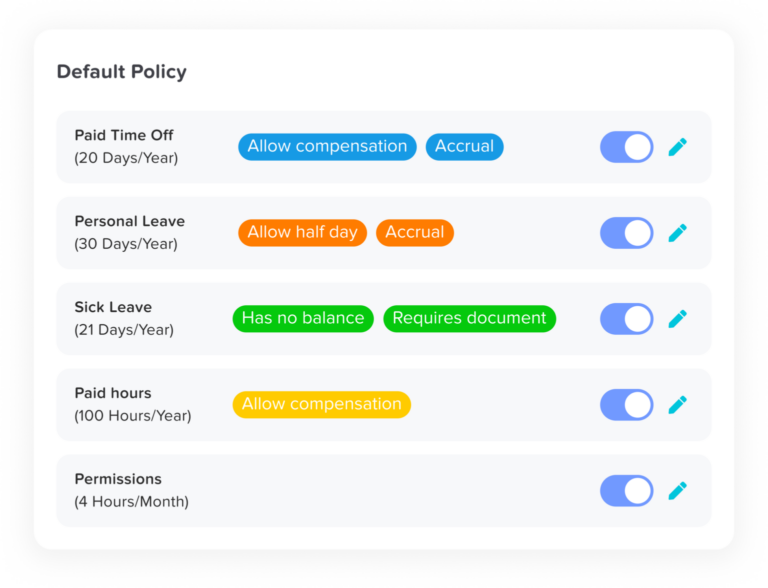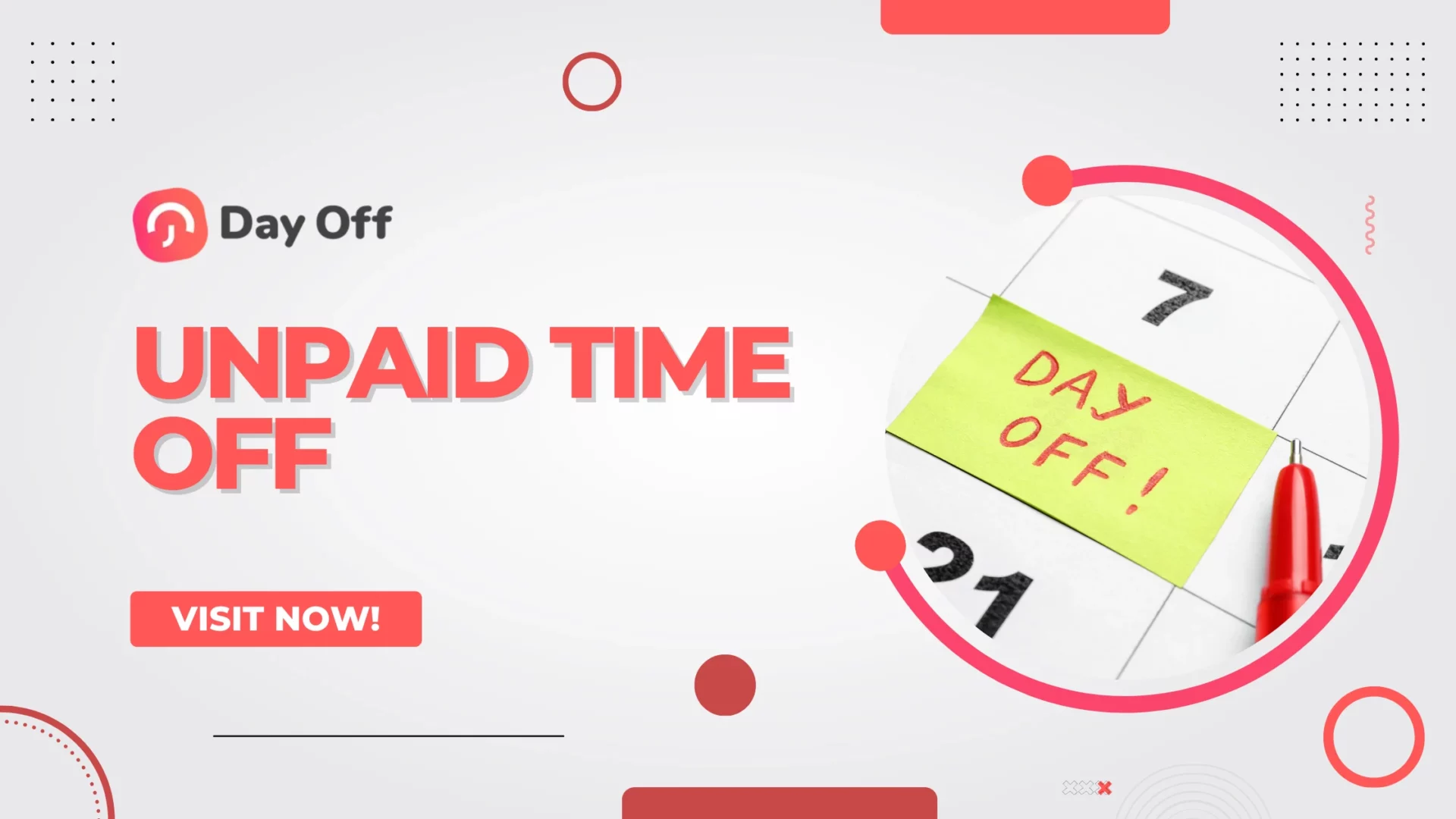Table of Contents
ToggleWork-life balance is more important than ever. Employees are looking for ways to take care of their personal lives while still being productive at work. One solution that employers often offer is unpaid time off (UTO). But what exactly is unpaid time off, and how does it work?
This article will take a deep dive into unpaid time off, explaining its meaning, benefits, challenges, and how it compares to other types of leave. Whether you’re an employee considering taking unpaid time off or an employer figuring out how to manage it, this guide will provide you with everything you need to know.
What is Unpaid Time Off?
Unpaid time off is a period during which an employee is allowed to take time away from work without receiving pay. Unlike paid leave (such as vacation or sick days), unpaid time off means that the employee will not be compensated for the days they are absent. However, they are still considered an employee of the company during this time and often retain benefits like healthcare, depending on company policies.
Employees might request unpaid time off for a variety of reasons, such as:
- Personal emergencies or family issues
- Extended vacation when paid time off is exhausted
- Health problems that exceed available sick leave
- Educational or training opportunities
- Mental health or well-being
- Extended maternity or paternity leave
How Unpaid Time Off Works
Every company has different policies regarding unpaid time off. Some may have a formal process in place where employees need to submit a request and get approval while using tools like Day Off Leave Tracker, while others might allow more informal arrangements.
In most cases, unpaid time off must be approved by a manager or human resources (HR). Employers may have specific rules about how much notice is required or how much time off is allowed. Some companies offer a set number of unpaid days, while others may be more flexible.
Once the time off is approved, the employee will be absent from work for the agreed-upon period, during which they will not receive any wages. They are typically expected to return to work immediately after the unpaid time off ends.

The Legal Aspects of Unpaid Time Off
The legal aspects surrounding unpaid time off vary from country to country and depend on the specific laws and regulations in place. In the United States, the Family and Medical Leave Act (FMLA) is a key law governing unpaid leave. The FMLA requires covered employers to provide eligible employees with up to 12 weeks of unpaid, job-protected leave for certain family and medical reasons.
It’s important to note that not all employees are covered by FMLA, and the law has specific eligibility requirements. To qualify, an employee must work for a company that has 50 or more employees within a 75-mile radius. They must also have worked for the company for at least 12 months and logged at least 1,250 hours during that time.
Other countries have their own laws regarding unpaid leave. For instance, in the European Union, employees are entitled to unpaid parental leave of up to four months per child. Employers in Canada, Australia, and other nations may also be required to provide unpaid leave in specific circumstances.
Unpaid Time Off vs. Other Types of Leave

Unpaid time off is just one type of leave, and it’s important to understand how it compares to other forms of time away from work.
Paid Time Off (PTO): PTO includes vacation days, personal days, and sick leave, all of which are compensated. PTO is usually part of an employee’s benefits package, and once it is used up, unpaid time off may be the next option.
Sick Leave: Sick leave is provided when an employee is ill or needs to care for a sick family member. In most cases, sick leave is paid, but once it is exhausted, employees may need to take unpaid time off.
Parental Leave: Some companies offer paid parental leave, but once it is used up, unpaid leave may be necessary for parents who wish to extend their time at home.
FMLA: The Family and Medical Leave Act provides unpaid, job-protected leave for certain medical and family situations. While it is unpaid, it ensures that employees can take time off without fear of losing their jobs.
Types of Unpaid Time Off
Unpaid time off can take many forms, depending on the specific circumstances. Some of the most common types of unpaid time off include:
Unpaid Personal Leave: When employees need time off for personal reasons, such as moving, handling family affairs, or attending to personal business, they can request unpaid personal leave.
Extended Medical Leave: If an employee has exhausted their paid sick days or paid medical leave, they may need to take unpaid medical leave, particularly for long-term illnesses.
Parental Leave: In cases where an employee wants to spend additional time with a newborn or recently adopted child, unpaid parental leave may be an option once paid parental leave is used up.
Sabbaticals: Some companies allow employees to take unpaid sabbaticals to pursue personal interests, educational opportunities, or simply recharge after a long period of work. Sabbaticals may range from several weeks to several months.
Leave of Absence: A leave of absence is a more formal form of unpaid time off, typically used for extended time away due to family or medical reasons. Leaves of absence are often governed by laws like the Family and Medical Leave Act (FMLA) in the U.S.
Can an employer deny unpaid leave?
Yes, in most cases, employers have the right to deny requests for unpaid leave unless the leave is protected by law, such as under the Family and Medical Leave Act (FMLA) in the U.S. or other similar regulations. For personal or discretionary unpaid leave, employers can evaluate whether granting the time off would affect business operations and make decisions accordingly.
Do I accrue benefits like vacation or seniority while on unpaid leave?
Typically, employees do not accrue benefits like paid time off (vacation, sick days) or seniority while on unpaid leave. However, this may vary by company policy. In some cases, companies may continue to offer certain benefits, such as healthcare coverage, but employees may need to pay their share of premiums.
How does unpaid leave affect my health insurance?
Health insurance coverage during unpaid leave depends on the employer’s policies and applicable laws. Under the FMLA in the U.S., for example, employers must maintain group health insurance under the same terms as if the employee were working. However, employees may need to continue paying their portion of the insurance premiums. Outside of protected leaves, it’s up to the employer to decide if benefits like health insurance continue.
Can I use unpaid leave for vacation purposes?
Yes, if your employer allows it. Once you have exhausted your paid vacation days, you may request unpaid leave to extend your vacation. Whether or not this is approved depends on company policy and the employer’s discretion. Some companies may allow unpaid leave for travel, while others may not due to operational needs.
Can I work for another company while on unpaid leave?
This depends on company policy. Many employers have policies against working for another employer while on any kind of leave, especially if the leave is related to health issues or recovery. It’s important to check with your company’s HR department and review any non-compete or conflict of interest clauses in your contract.
Can unpaid leave be used intermittently?
In some cases, unpaid leave can be taken intermittently, particularly under laws like the FMLA, where employees may take leave in smaller increments (e.g., for ongoing medical treatments or caregiving). However, for personal or discretionary unpaid leave, the availability of intermittent leave depends on the employer’s policy.
What happens if I don’t return to work after unpaid leave?
If an employee does not return to work after the agreed-upon unpaid leave, the employer may consider the employee as having voluntarily resigned unless otherwise agreed upon. In some cases, if the employee fails to return after a legally protected leave like FMLA, they might forfeit certain rights, such as health insurance continuation.
How much notice is required for unpaid leave?
The amount of notice required for unpaid leave varies by employer policy and the reason for the leave. For FMLA-covered leave in the U.S., employees are typically required to give 30 days’ notice when the need for leave is foreseeable. In other cases, such as emergencies, notice should be given as soon as possible. Employers often require written requests for unpaid leave, especially for non-emergency situations.
Is unpaid leave taxed differently than paid leave?
No, unpaid leave is not taxed because there is no income during this period. However, if you’re receiving other benefits during unpaid leave, such as short-term disability or unpaid leave as part of a severance package, consult a tax professional to understand potential tax implications for any benefits received during that time.
Can unpaid leave be used in combination with paid leave?
Yes, employees can typically combine paid and unpaid leave. For instance, they may use up all their paid time off (vacation or sick days) and then transition into unpaid leave if more time is needed. This is often the case with extended medical or parental leave, where an employee exhausts their paid leave first.
Is there a difference between unpaid leave and furlough?
Yes, there is a difference. Unpaid leave is usually initiated by the employee (e.g., for personal reasons, medical needs, etc.), while a furlough is typically initiated by the employer, often due to financial difficulties, to temporarily reduce labor costs. During furloughs, employees may be required to take unpaid time off but retain their employment status and may still receive benefits like health insurance.
Can I lose my job while on unpaid leave?
During legally protected unpaid leave, such as FMLA, employees are protected from job loss or retaliation. However, if you take unpaid leave that is not covered by legal protections or an official company policy, your employer may have the discretion to terminate your employment, especially if your absence significantly disrupts operations or exceeds an agreed-upon duration.
Does unpaid leave affect my pension or retirement contributions?
Generally, unpaid leave can affect your pension or retirement plan contributions since you aren’t earning a salary to contribute from. Depending on the retirement plan, contributions may be paused during the leave period, and the employer may not contribute either. Employees should check with their HR department to understand how their retirement savings or pension may be impacted.
How long can I stay on unpaid leave?
The length of unpaid leave depends on the situation, the employer’s policies, and any relevant laws. For example, under FMLA in the U.S., employees are entitled to up to 12 weeks of unpaid leave. However, for personal reasons or other unpaid leave not covered by law, the duration must be negotiated with the employer and agreed upon in advance.
What if my employer doesn’t have a formal unpaid leave policy?
If your employer doesn’t have a formal unpaid leave policy, you can still request unpaid leave. The employer can approve or deny the request based on their discretion. Without a formal policy, it’s crucial to get any agreements regarding unpaid leave in writing to avoid misunderstandings.
Conclusion
Unpaid time off offers a valuable option for employees who need flexibility in managing their personal lives, health, or family obligations. While it comes with the trade-off of no income during the absence, the ability to take unpaid leave can help employees maintain work-life balance, address personal matters, and return to work with renewed focus and productivity.
For employers, offering unpaid time off can improve employee retention, well-being, and satisfaction. However, it’s important to have clear policies in place and to manage unpaid leave carefully to avoid disruptions in the workplace.
Ultimately, unpaid time off is a useful tool for both employers and employees, helping to foster a more flexible, supportive, and balanced working environment
